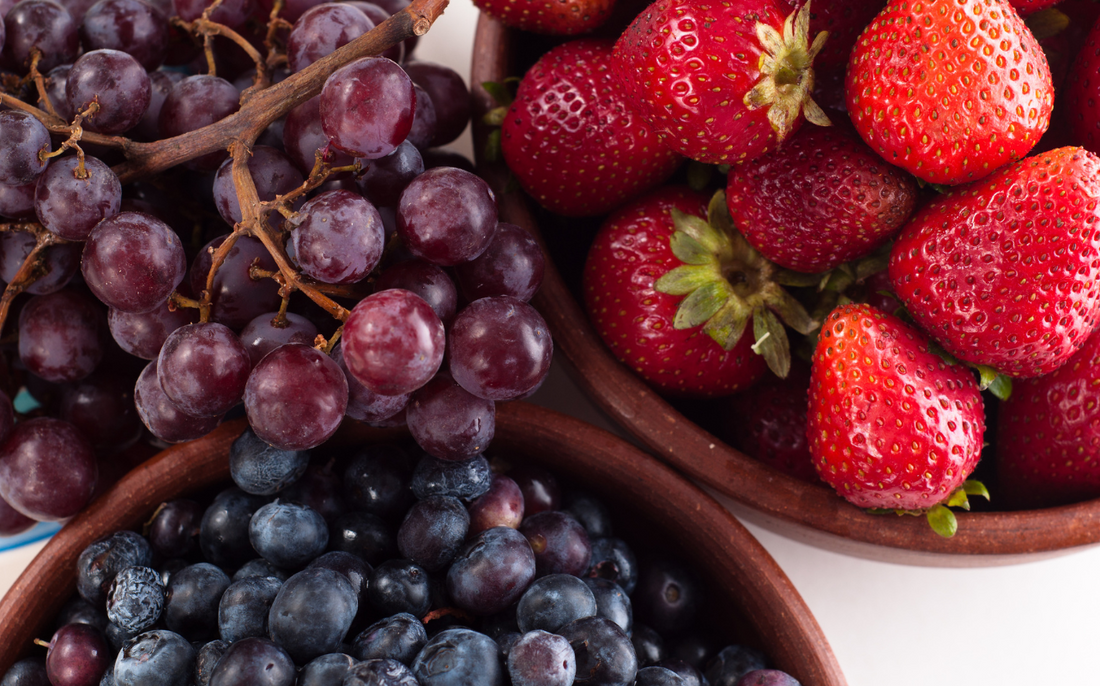You’ve probably heard the word ‘antioxidant’ passed around in the medical and dietary space, but what actually are they, and why do you need to know about them?
Antioxidants work to reduce or negate the effects of free radicals in the body – the unstable molecules produced by the cells in reaction to the environment. If the body cannot dispose of these waste substances effectively, then the results can lead to oxidative stress, which has strong links to various health problems, including cancer, heart disease, stroke, to name a few. The production of free radicals in the body is influenced by a number of factors, both internal, such as inflammation, or external, such as UV exposure, or pollutants like cigarette smoke or car fumes.
Antioxidants on the other hand, help to combat oxidative stress by neutralising the free radicals in the body. They can be found in both natural and artificial forms, certain plant-based foods are very rich in antioxidants, in the form of phytonutrients.
Understanding Antioxidants
There are possibly thousands of different substances and compounds that can act as antioxidants in the body, as the term ‘antioxidant’ is less the name of a specific compound, but rather the term used to describe a specific effect.
Examples of antioxidants include:
- Vitamin groups A, C and E (taken separately or in a multivitamin)
- Beta-carotene
- Selenium
- Manganese
Plant types include flavonoids, polyphenols and phytoestrogens. Every antioxidant has a slightly different function, and so it is important to be consuming a wide variety as part of a balanced and varied diet.
Sources of Antioxidants
One of the best (and tastiest!) ways of making sure you are getting enough antioxidants is through your diet. There are many foods that are ultra-rich in antioxidants – known as superfoods. Lets break down some of the best ways to maintain your antioxidant levels.
- Vitamin A – Dairy produce and eggs
- Vitamin C – Fruits and vegetables
- Vitamin E – Nuts, seeds, vegetable oils and leafy greens
- Beta-carotene – Fruits and vegetables with bright colours such as carrots (of course), mango, peas etc
- Selenium – Starches such as rice, wheat and wholegrains, but also nuts, cheese etc
There are other honourable mentions including tea, dark chocolate, aubergine and goji berries, that contain high levels of antioxidants. For a general rule of thumb, foods that have rich, vibrant colours are generally a good source.
Tips and tricks
Having read up to this point, you must understand the importance of keeping your intake of antioxidants high. But this wouldn’t be an Etanics blog without some useful tips and tricks you can start using today, to better your wellness.
- Add a fruit or vegetable to every meal, like a cup of strawberries with breakfast, or a garden salad with dinner
- Have a cup of green, black or matcha tea every day
- Use spices such as ginger, clove, cinnamon or turmeric in your cooking
- Swap unhealthy snacks with nuts or fruit
- Reduce exposure to toxins such as cigarette smoke, and manage your UV exposure
- Manage your stress levels where possible
Conclusion
To conclude this blog, we can summarise that antioxidants are a great way to manage the threat posed by free radicals. To make sure you are keeping your personal antioxidant levels high, it is recommended to eat a colourful, balanced and varied diet, as well as manage the areas in your life that bring you stress. Other lifestyle changes, including limiting exposure to UV light, or air pollutants can also aid in your personal journey against free radicals.
As always, at Etanics we aim to bring valuable information to our customers, to help them make the best decisions in regards to their own health and wellbeing.

